Russell Westbrook leads pack of point guards picked as NBA All-Star reserves
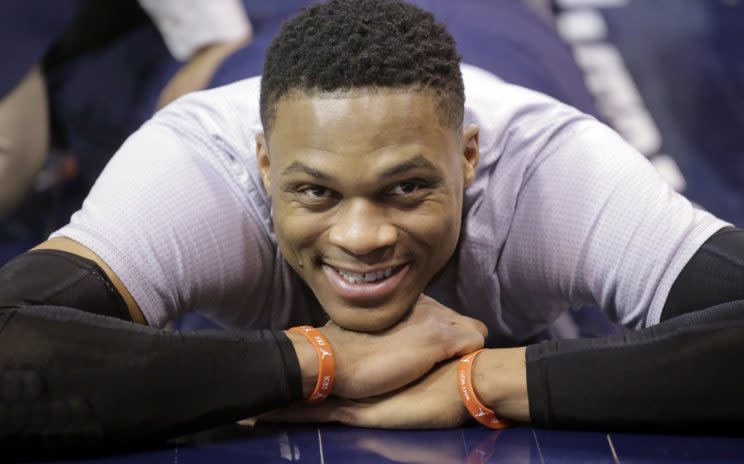
Discussion of the selections for Feb. 19’s 2017 NBA All-Star Game in New Orleans has focused largely on the new voting rules and the snub of Russell Westbrook when starters were set last week. The league announced the 14 reserves who will join those 10 starters on Thursday night on TNT, and the final list of All-Stars looks relatively devoid of controversy and egregious snubs — with one exception.
The biggest news was also the most predictable. Westbrook will join previously named starters James Harden and Stephen Curry in the Western Conference backcourt. The Oklahoma City Thunder superstar and triple-double machine had tied Curry under new voting rules, but missed out on a starting nod due to the fan vote tiebreaker. He was a no-brainer inclusion and will attempt to win his third All-Star Game MVP.
[Join a Yahoo Daily Fantasy Basketball contest now | Free NBA Yahoo Cup entry]
The Eastern Conference’s most notable story is who didn’t make it. Philadelphia 76ers center Joel Embiid, a bona fide sensation and the overwhelming favorite for Rookie of the Year, was not named to the squad. Embiid finished third in fan voting in the East frontcourt and had become a popular All-Star pick not just for his fantastic production, but also his immense watchability and the way he has turned the previously draft-focused Sixers into a genuinely exciting team. Simply put, basketball fans want to see Embiid alongside the league’s best players.
The other big news on the West squad was the inclusion of Golden State Warriors forward Draymond Green and guard Klay Thompson, who will join teammates Curry and Kevin Durant. The star-studded Warriors are the eighth team in league history with four All-Stars, and the first since the Atlanta Hawks in 2015. Golden State’s Steve Kerr will also be in New Orleans as the West’s head coach.
The West team also includes Sacramento Kings center DeMarcus Cousins, Memphis Grizzlies center Marc Gasol, Los Angeles Clippers center DeAndre Jordan, and Utah Jazz wing Gordon Hayward. Jordan and Hayward are the conference’s only first-time All-Stars. Starters Curry, Harden, Durant, Kawhi Leonard, and Anthony Davis will also be in uniform.
The East roster is flush with point guards. Boston Celtics dynamo Isaiah Thomas, Washington Wizards star John Wall, Charlotte Hornets point Kemba Walker (the conference’s only first-time All-Star), and Toronto Raptors mainstay Kyle Lowry join starter Kyrie Irving of the Cleveland Cavaliers. It’s not clear how the East coach will manage that rotation, but All-Star lineups rarely matter anyway.
[Follow Ball Don’t Lie on social media: Twitter | Instagram | Facebook | Tumblr]
Those guards will be joined by fellow reserves Kevin Love, Paul George of the Indiana Pacers, and Paul Millsap of the Atlanta Hawks. Love will play alongside Irving and LeBron James to make the Cleveland Cavaliers the only team with three players in the game.
Reserves were chosen by the league’s head coaches, who picked seven reserves apiece (excluding guys from their own teams). That system was not changed from previous years, unlike the starter vote that now includes players and a panel of media members.
And now, a quick look at the reserves for each conference:
WESTERN CONFERENCE
Russell Westbrook, Oklahoma City Thunder: Duh.
Everything we imagined was coming after Kevin Durant pulled up stakes for Oakland has come to pass. But predicting something doesn’t necessarily mean you’re ready for it, and man, has the league not been ready for No. 0. Westbrook has been a man on fire since the season’s opening tip, leading the league in scoring at 30.7 points per game. He’s carrying a historically remarkable offensive load for a Thunder team that dies when he sits, that relies on him to create absolutely everything in close-and-late situations, and that has remained in hailing distance of home-court advantage in the opening round of the playoffs despite losing one of the best players in the world for nothing.
Leading the league in scoring is one thing; actually averaging a triple-double through half the season is another. But that’s precisely what Westbrook’s done, putting himself in line to become the first player since Oscar Robertson all the way back in the 1961-62 season to average more than 10 points, 10 rebounds and 10 assists per contest. He has done it in spectacular, unforgettable, unapologetic and quintessentially Westbrookian fashion, kicking up dust and pulverizing rims everywhere he’s gone. The next stop on that trail of terror will be New Orleans, where he may well become the first player ever to win All-Star MVP honors three years in a row.
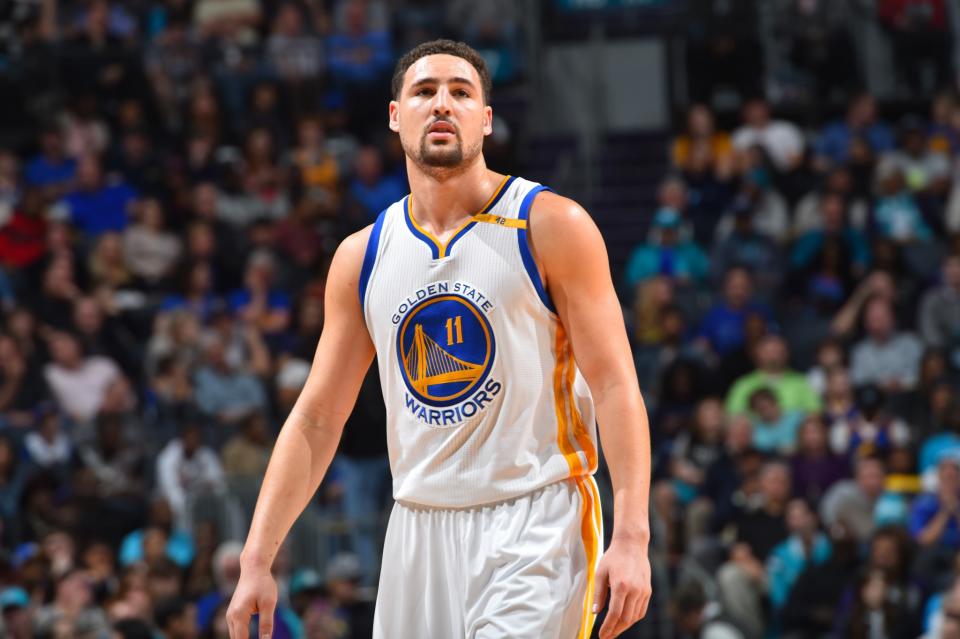
Klay Thompson, Golden State Warriors: It’s difficult to argue that Thompson is anything but the fourth-most important player on the loaded Warriors. For that matter, his Player Efficiency Rating sits at just 15.6 (barely above the league average) and his 3-point percentage has dipped thanks to a rough start to the season.
Circumstances matter, though, and it remains easy to marvel as Thompson finds and exploits space while defenses attempt to solve the most fearsome attack in the sport. While his offensive value to the Warriors is certainly lower than it was a year ago, the second Splash Brother’s threat is still heavily responsible for the structure and logic of what Golden State does. It’s also important not to forget that he guards the opponent’s best perimeter scorer for the most efficient defense in the league.
Far less impressive teams have had four All-Stars in the past, and Thompson continues to excel at both ends in a way few others can match.
Draymond Green, Golden State Warriors: If you were hoping for a quieter year from the guy who set 2015-16 aflame, you’re out of luck. If you’re a Warriors fan, though, you’re quite giddy: Draymond is so cerebral and talented, and Golden State is so damn good, that it has hardly mattered that Green barely walked back some of the kickier instincts that marred last year’s championship just-miss for the Warriors.
Yes, Green received a flagrant-one for his kick of James Harden earlier in the year, but it isn’t as if his misfire directly cost Golden State the loss, of which the Warriors have just seven in 46 games this season. Even on a team with two All-Star starters in Durant and Curry, and another reserve in Thompson, it doesn’t take a deep look (like this one) to walk away from Warriors wins wondering if Green was the key to the conquest.
Averaging 10.7 points alongside a team-leading 8.5 rebounds and 7.5 assists, Green somehow contributes 3.3 combined blocks and steals a game, and stays remarkably foul-averse despite his more notable missteps. He’s contributed three triple-doubles so far this season, and figures to be the first power forward in NBA history to lead his team in assists in consecutive years.
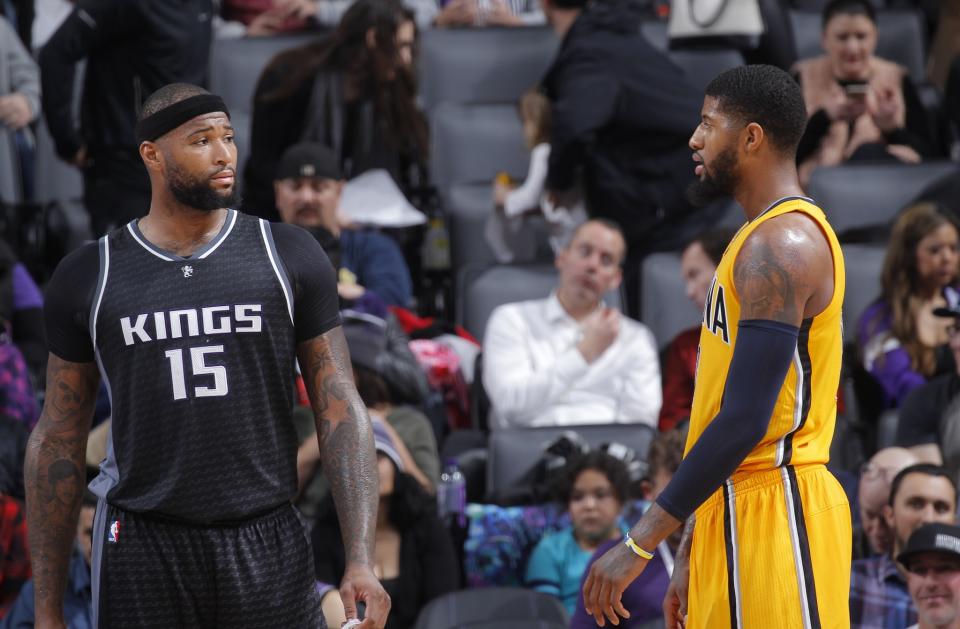
DeMarcus Cousins, Sacramento Kings: It’s been a pretty standard season for Cousins — full of trade rumors, jaw-dropping plays followed immediately by needless fouls, incredible lines, improbable inefficiencies, feuds with the press, and numbers that would demand far more attention if he played for a more functional organization. At the end of the day, it’s hard to argue with 28.0 points, 10.3 rebounds, 4.4 assists, 1.4 blocks and 1.4 steals per game for a Kings team with very little else to get excited about.
Plus, Cousins probably deserves an All-Star bid just for scoring 55 points and getting unejected (for the first time ever in the NBA, as far as we know) in the same game. It takes a special talent to contain so many contradictions.
Marc Gasol, Memphis Grizzlies: Gasol and his Grizzlies have fallen off of late, losing 11 of their last 20. But that can’t take away from Gasol’s ongoing brilliance as one of the game’s great two-way players, one working at a position that, even in an age days of center-free All-Star ballots, still merits obsession when performed properly.
Not yet 32 years old, Gasol is averaging a career-high 20.6 points per game alongside 6.1 rebounds and 1.4 blocks per game for the NBA’s fourth-rated defense. His 4.2 assists also rank as a career-high, all part of the package that makes Marc and Memphis one of the league’s more fearsome late-contest outfits.
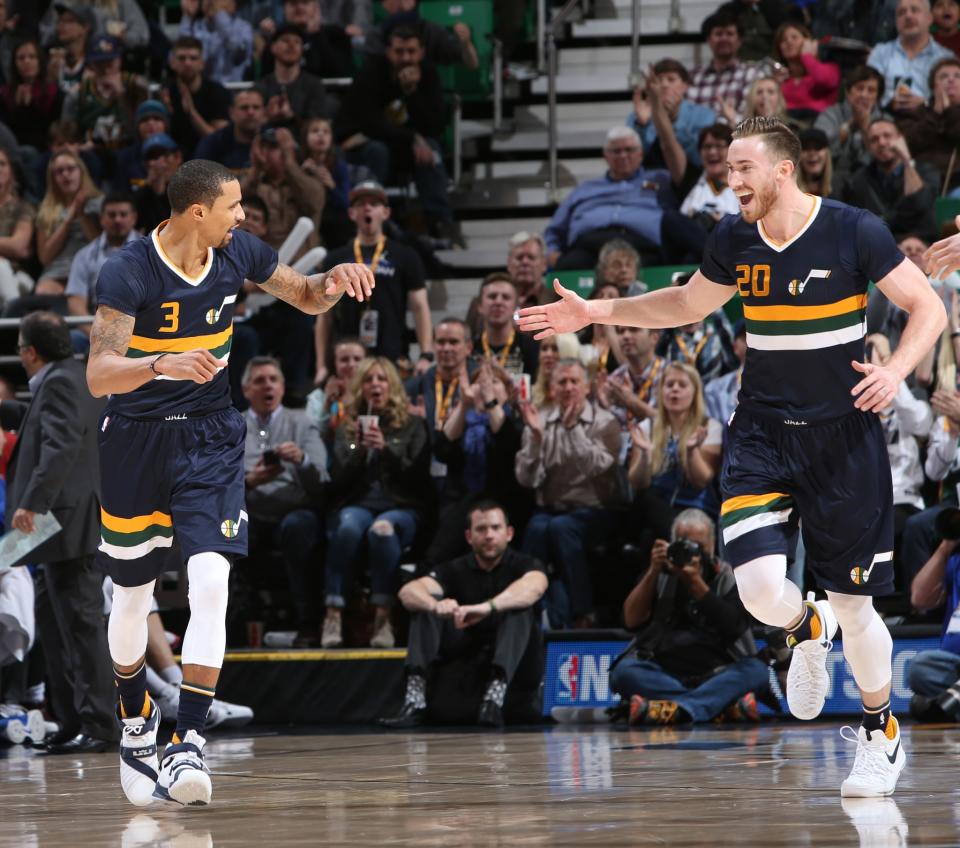
Gordon Hayward, Utah Jazz: If you’d thought Hayward had already made an All-Star team, you’d be forgiven. The 26-year-old has been offering reliable two-way production as a versatile starter for four seasons now, but missed the cut in years past due to the breadth of brilliant forwards in his conference.
He made his first squad this year not just because the Jazz — on pace for 50-plus wins and home-court contention in the first round the playoffs — are one of the league’s better up and coming teams. No, it’s because his game merits as much.
Hayward is averaging career-highs in points (21.8) and rebounds (5.7) while limiting his turnovers and upping his 3-point shooting to nearly 40 percent. He overcame a training-camp finger fracture to miss just six games and steady the Jazz’s approach late in games as a pick-and-roll man. His all-around numbers compete with MVP candidates — Durant in terms of free throw attempts, Kawhi Leonard on the glass — and he appears to be a game-changer behind the scenes for a Jazz team with designs on not only returning to the playoffs for the first time in five years, but on making some serious noise once they arrive.
DeAndre Jordan, Los Angeles Clippers: With Chris Paul sidelined by injury and Blake Griffin only just returned from his own monthlong shelving, the coaches chose Jordan as the standard-bearer for the 30-17 Clippers. The behemoth center continues to serve as the stalwart man in the middle for the West’s No. 4 seed, leading the league in field-goal percentage for the fifth straight season and standing as the NBA’s most efficient monster rolling to the rim after setting a screen. He’s also leading the league in rebounding for the third time in four years, and the Clippers have defended at a top-five rate (allowing 102.5 points per 100 possessions) with him on the floor compared to a bottom-10 level (conceding 107 points-per-100) when he sits.
We expected the coaches to add a paint-protecting, rim-rattling, pick-and-roll finisher and shot-blocker to the Western roster; we just expected it would be Utah’s Rudy Gobert. Instead, the 28-year-old Jordan will make his All-Star debut next month in New Orleans. Expect there to be many, many lobs thrown in his direction.
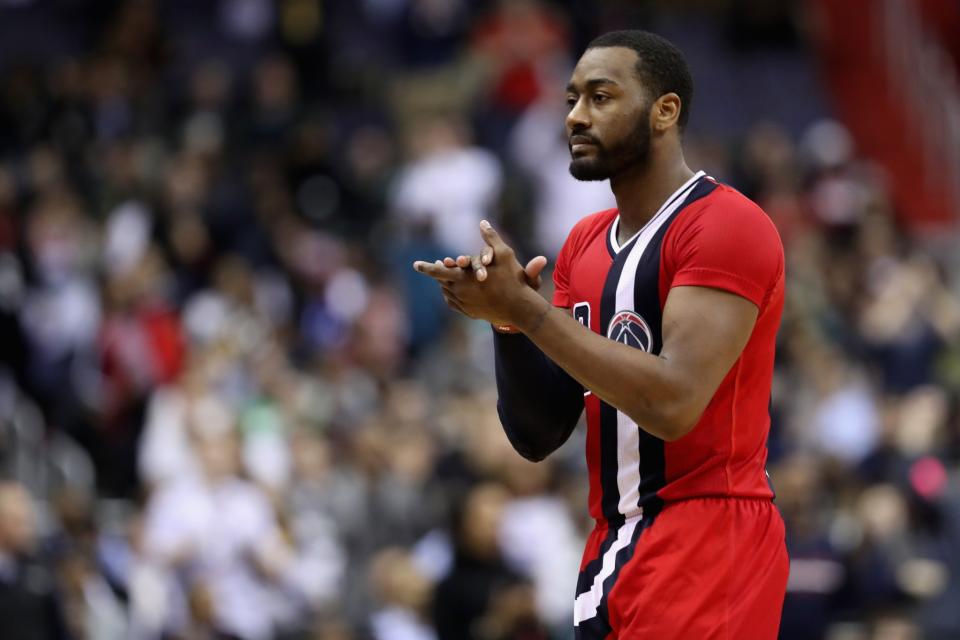
EASTERN CONFERENCE
John Wall, Washington Wizards: After starting 6-12, the Wizards have since climbed to 25-20 and are threatening for a home playoff series, thanks to Wall, whose 27-7-7 with three steals in the infamous “funeral” win over the Boston Celtics is becoming the norm. Even as Bradley Beal submits a career year in the same backcourt, Wall represents D.C.’s best All-Star bid by a large margin.
Wall’s combination of explosive drives and electrifying passes is unmatched in the East, where he ranks fifth among guards in scoring and leads the conference in assists. Add some stingy defense and clutch play in the best shooting stretch of his seven seasons, and Wall’s fourth straight All-Star selection was an easy call.
Isaiah Thomas, Boston Celtics: The 5-foot-9 point guard is having arguably the greatest season ever by anyone under 6 feet. After making his first All-Star appearance last year, Thomas has elevated his play, emerging as a fringe MVP candidate and one of the NBA’s most clutch performers.
His 10.1 points per game in the fourth quarter lead the league — more than a half-point better than Westbrook, and well ahead of anybody else. While the gap between his offense and defense is “nearly unprecedented,” according to data studied by the Harvard Sports Analysis Collective, Thomas has been so good on the scoring end that he earned a starting vote from players and media, making his All-Star reserve case the slam dunk he’s still searching for in an NBA game.
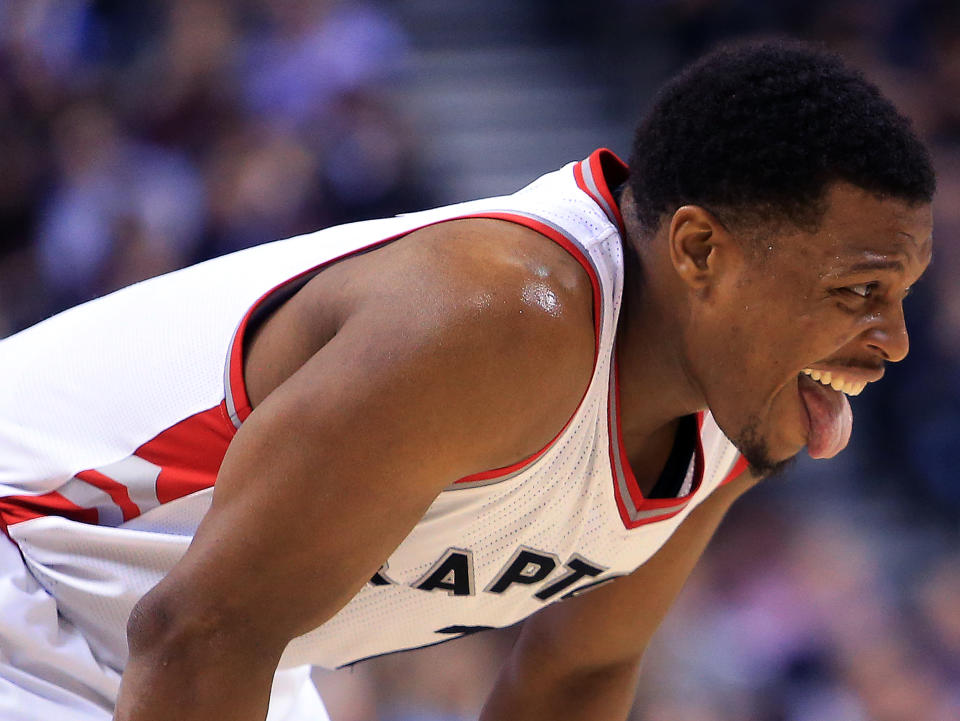
Kyle Lowry, Toronto Raptors: DeMar DeRozan finished higher on the ballots of NBA fans, media members and players, but there’s a strong case to be made that the 30-year-old Lowry not only should’ve been the Raptor tapped to start. And, in fact, that he’s has been even more deserving of a starting nod this year than he was last year, when he opened the game for the East at Madison Square Garden.
Lowry’s averaging a career-best 22.4 points, 6.9 assists and 4.8 rebounds in 37.3 minutes per game, acting as the conductor of the NBA’s No. 2-ranked offense and the two-way leader of a Raptors squad that sits three games behind the Cleveland Cavaliers in the race for the top spot in the East. Toronto has outscored opponents by 9.2 points per 100 possessions in nearly 1,700 minutes with Lowry on the court this season, and been outscored by 3.4 points-per-100 in the 538 minutes he’s sat — the difference, essentially, between blowing teams out like the San Antonio Spurs and getting regularly shellacked like the Miami Heat (on nights where Dion Waiters isn’t playing like a superstar, at least).
He leads the East in 3-pointers made and attempted, shooting a career-best 42.2 percent from long distance on 7.5 attempts per night. Advanced stats love him — he’s second only to Chris Paul in Real Plus-Minus and sixth in Value Over Replacement Player — and any adherent to the eye test need only watch Lowry fight for every inch on every possession to fall in love with the furnace at his core.
With all due respect to DeRozan’s tremendous scoring touch, Lowry is the straw that stirs the drink in Toronto. He should’ve been in the East’s starting five, and richly deserves his third straight All-Star nod.
Paul George, Indiana Pacers: Now more than two years removed from his gruesome leg injury, George is firmly entrenched as one of the East’s best players. His numbers don’t jump out at you — 22.2 points, 6.0 rebounds, and 3.2 assists per game with a 19.0 Player Efficiency Rating — and they frankly fall below many others on his list. But all his shooting percentages are up (as his usage rate has dipped) and there is no reason to reassess his abilities. At a certain point, body of work matters.
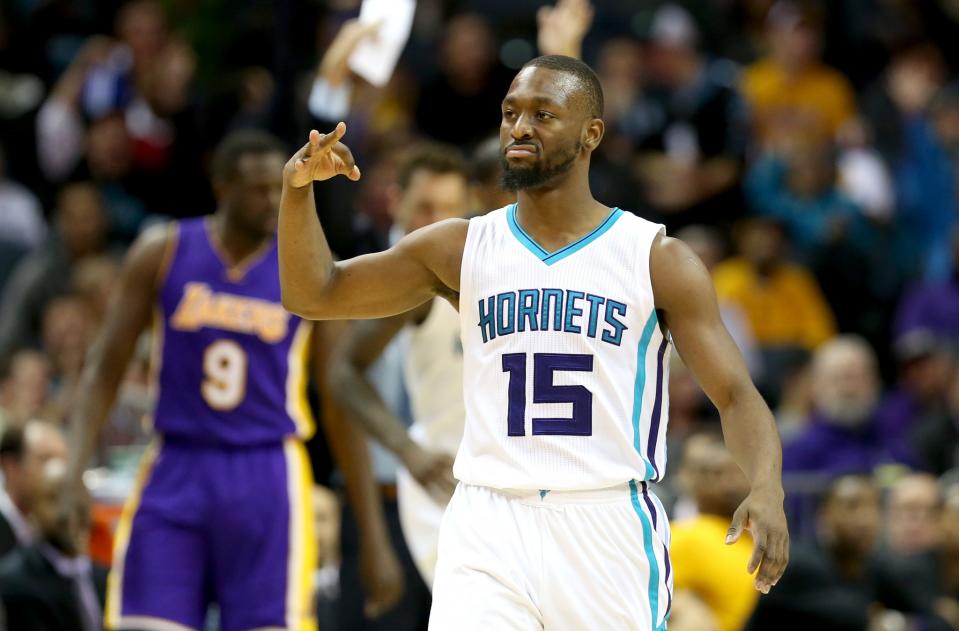
Kemba Walker, Charlotte Hornets: The Hornets have slipped of late, losing nine of 13 since Christmas. But they’re still just a couple of games away from vying for home-court advantage in the opening round of the playoffs, thanks in large part to Walker’s work as Charlotte’s offensive engine.
Walker’s averaging 23 points per game on 45.6 percent shooting from the field and a 41.1 percent mark on 6.9 3-point tries per game — all career highs. He’s second in the East in 3-pointers made, a previously unthinkable outcome for a player who just two years ago was one of the NBA’s least accurate high-volume long-range launchers. He’s producing more efficiently than ever while taking on the largest offensive role of his career; the Hornets’ attack goes from top-seven caliber (108.7 points per 100 possessions) with Kemba at the controls to dead-last in the NBA (99 points-per-100) when Walker sits down.
In an increasingly point-guard-driven league, Walker’s been one of the five or six best triggermen in the East thus far, and the biggest reason the Hornets are in playoff position. It feels right to reward Walker (and those Chuck Norris videos) with his first All-Star appearance.
Paul Millsap, Atlanta Hawks: The 31-year-old’s game seems a total antithesis to All-Star pageantry. Few players are less likely to engage in highlight-reel dunking, ball-handling and Steph-distance 3-bombing, or the sort of sketch-comedy in-game activities that might go viral; this, in part, is why so many (including several of us) said we’d rather see more “fun” players like Embiid and George suit up for the East in a lighthearted contest devoid of defense, free of grit and full of goofing.
None of that, however, mitigates the merits of Millsap’s case. This dude is freaking good, one of the best two-way forwards on the planet, and the single biggest reason why the Hawks have remained a top-four-caliber team in the East despite offloading four-fifths of the core that took the league by storm two seasons ago.
Millsap’s averaging a career-best 18 points and 3.8 assists per game to go with 8.1 rebounds, 1.5 steals and a block per night. He’s threatening enough from the perimeter (35.5 percent from deep) to stretch defenses, gifted enough off the bounce to beat sloppy or slow closeouts to compromise a defense, a savvy enough playmaker to work the draw-and-kick game, and brutalizing enough to bail out stalled possessions with bully-ball on the block. His overall offensive efficiency has dipped some as the size of his role in the Atlanta attack has grown, but he more than makes up for that with continued excellence on the other end of the floor.
He contests a ton of shots, deflects a ton of passes, and his versatility, smarts and activity have helped Atlanta remain a top-five defense despite replacing 40 percent of its starting lineup this summer. He’s tied for third in the league in Defensive Real Plus-Minus, behind only Defensive Player of the Year favorites Gobert and Green.
Atlanta outscores opponents by 4.6 points per 100 possessions with Millsap on the floor, and get outscored by 7.9 points-per-100 when he sits. His presence and absence essentially determines whether the Hawks perform like one of the NBA’s half-dozen best teams in the league or one of its two or three worst.
He’s the heart of a 27-19 team that weathered an early-season storm and the trade of one of its most popular players to return to contention for the No. 2 spot in the East. I’m not sure he’ll be the one suggesting the Mannequin Challenge in the huddle, but he’s a deserving pick to make his fourth straight All-Star appearance.
BDL’s Dan Devine, Kelly Dwyer and Ben Rohrbach contributed to this report.
– – – – – – –
Eric Freeman is a writer for Ball Don’t Lie on Yahoo Sports. Have a tip? Email him at efreeman_ysports@yahoo.com or follow him on Twitter!


